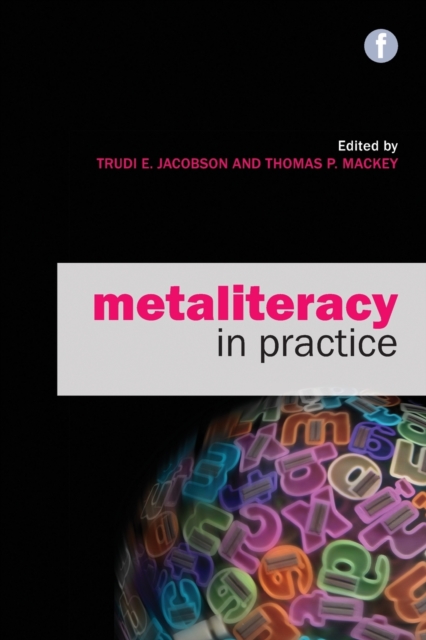
Metaliteracy in Practice Paperback / softback
Edited by Trudi E. Jacobson, Thomas P Mackey
Paperback / softback
Description
Metaliteracy in Practice will provide inspiration for librarians and educators in need of up-to-date and thought-provoking information literacy curricula and instructional approaches.
Editors Trudi E. Jacobson and Thomas P. Mackey, respected leaders in distance education and library instruction, reframed information literacy in their acclaimed previous book, Metaliteracy: Reinventing information literacy to empower learners, which provided an inclusive framework that encompasses all the newer literacies such as digital, visual, cyber and media literacy.
Metaliteracy in Practice follows on from this book, placing its concepts firmly in real-world practice and delivering a compilation of innovative and practical teaching ideas from some of the leading thinkers in library and information literacy instruction today.
Each chapter takes readers through the process of using the metaliteracy framework in new and exciting ways that easily transfer to the classroom and to work with students.
These ideas are grounded in teaching traditional information literacy competencies but brought up-to-date with the addition of methods for teaching and learning about metacognition, information creation and participation in learning communities.
The case studies contained in this collection detail the hows and whys of curricular design for metaliteracy, suitable for both beginners and seasoned professionals.
Readers will also benefit from the book’s practical ideas for: • teaching students about the importance of format choice • assessing user feedback • creating information as teachers • evaluating dynamic content critically and effectively • sharing information in collaborative environments.
The collection has some of the most innovative teaching ideas for inspiring librarians and educators to revise lessons on critical thinking and information literacy, so that their students will graduate with the ability to formulate and ask their own questions.
Information
-
Available to Order - This title is available to order, with delivery expected within 2 weeks
- Format:Paperback / softback
- Pages:256 pages
- Publisher:Facet Publishing
- Publication Date:22/12/2015
- Category:
- ISBN:9781783300938
Information
-
Available to Order - This title is available to order, with delivery expected within 2 weeks
- Format:Paperback / softback
- Pages:256 pages
- Publisher:Facet Publishing
- Publication Date:22/12/2015
- Category:
- ISBN:9781783300938






